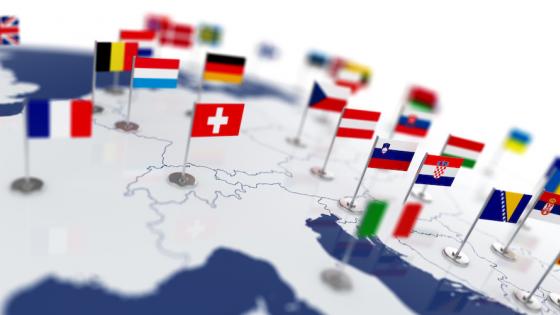Tampere and Pirkanmaa’s goals included – Effective advocacy trip in Strasbourg
Our EU office traveled to Strasbourg together with Jarmo Takala, Vice-Rector of Tampere University, for the European Parliament plenary week. The agenda included topics such as chips, defense, the future multiannual financial framework, and affordable housing.

The first week of May saw the European Parliament plenary week in Strasbourg, where our EU team, together with Jarmo Takala, Vice-Rector of Tampere University, undertook an effective advocacy trip focusing on themes important to our region. Among other things, the Parliament voted on its own positions on the future multiannual financial framework. The Parliament’s own-initiative report is its way of informing the European Commission of its own line even before the Commission’s initiative is published. This way, it has a better opportunity to influence the content of the initiative well in advance. The Commission’s initiative on the multiannual financial framework is expected in mid-July. The framework, which will start in 2028, must be approved unanimously by the member states and by a qualified majority in Parliament.
It is important for our region that the future financial framework does not limit the possibility of more developed regions receiving regional development funding. Within the more developed regions, there are also less developed regions where funding should be targeted. It is also important for economic and social development to maintain the share of funding allocated to cities.
We also hope that the principle of excellence will remain as the basis for RDI funding, as well as the preservation of an independent RDI framework programme. The Commission is expected to merge the funding programmes together and centralise them in the Competitiveness Fund in its initiative. Regarding the distribution of funds, according to preliminary information, the Commission is creating so-called national envelopes. In practice, the Commission would distribute money to the Member States for their national programmes, after which the Member States would use the funds in accordance with their plans. The Finnish MEPs we met agreed that such national envelopes are not the right way forward. The European Union has experience with a similar instrument, as the Recovery and Resilience Facility created for the corona pandemic followed this logic. This is not the best way to increase European added value, and regions and cities are not sufficiently well represented in the preparation of national plans. In addition, this centralised model increases the risk of corruption. Simplification can also be achieved without centralisation.
In addition to the multiannual financial framework, we also discussed chips, defence and affordable housing. Chips and the defence industry are partly intertwined, as high-quality chips are needed in many defence products. Improving Europe’s self-sufficiency now requires action to develop European chip design and production. For example, the design work carried out in Pirkanmaa, which customers can benefit from, is key to the European value chain.
In addition to more traditional EU themes, affordable housing has risen strongly on the agenda. The European Commission has launched a public consultation to support the planning of the European Affordable Housing Plan, and a special committee of the European Parliament is preparing a report on affordable housing, which is due to be completed in January 2026. Maria Ohisalo, a Finnish MEP, works on the committee. Affordable housing is an important theme, and there is good work being done on the subject in Tampere, for example. However, housing-related problems are quite dependent on the Member States, which is why using EU funds to solve the problem is not necessarily appropriate.
Overall, the advocacy trip to Strasbourg was a great success. The discussions with Mika Aaltola, Sebastian Tynkkynen, Maria Ohisalo, Ville Niinistö, Eero Heinäluoma and Jussi Saramo increased both our knowledge of internal parliamentary matters and the MEPs’ knowledge of our region’s strengths and, for example, important EU-level actions for the chips.






